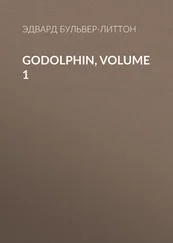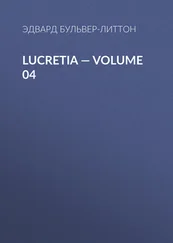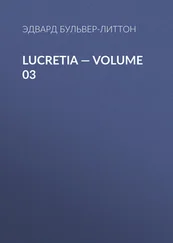Эдвард Бульвер-Литтон - My Novel — Volume 10
Здесь есть возможность читать онлайн «Эдвард Бульвер-Литтон - My Novel — Volume 10» — ознакомительный отрывок электронной книги совершенно бесплатно, а после прочтения отрывка купить полную версию. В некоторых случаях можно слушать аудио, скачать через торрент в формате fb2 и присутствует краткое содержание. Жанр: foreign_prose, literature_19, Европейская старинная литература, foreign_antique, на английском языке. Описание произведения, (предисловие) а так же отзывы посетителей доступны на портале библиотеки ЛибКат.
- Название:My Novel — Volume 10
- Автор:
- Жанр:
- Год:неизвестен
- ISBN:нет данных
- Рейтинг книги:4 / 5. Голосов: 1
-
Избранное:Добавить в избранное
- Отзывы:
-
Ваша оценка:
- 80
- 1
- 2
- 3
- 4
- 5
My Novel — Volume 10: краткое содержание, описание и аннотация
Предлагаем к чтению аннотацию, описание, краткое содержание или предисловие (зависит от того, что написал сам автор книги «My Novel — Volume 10»). Если вы не нашли необходимую информацию о книге — напишите в комментариях, мы постараемся отыскать её.
My Novel — Volume 10 — читать онлайн ознакомительный отрывок
Ниже представлен текст книги, разбитый по страницам. Система сохранения места последней прочитанной страницы, позволяет с удобством читать онлайн бесплатно книгу «My Novel — Volume 10», без необходимости каждый раз заново искать на чём Вы остановились. Поставьте закладку, и сможете в любой момент перейти на страницу, на которой закончили чтение.
Интервал:
Закладка:
Violante was in a state of blissful excitement; she could not analyze her own joy. But her conversation was chiefly with Leonard; and the most silent of all was Harley. He sat listening to Leonard's warm yet unpretending eloquence,—that eloquence which flows so naturally from genius, when thoroughly at its ease, and not chilled back on itself by hard, unsympathizing hearers; listened, yet more charmed, to the sentiments less profound, yet no less earnest,—sentiments so feminine, yet so noble, with which Violante's fresh virgin heart responded to the poet's kindling soul. Those sentiments of hers were so unlike all he heard in the common world, so akin to himself in his gone youth! Occasionally—at some high thought of her own, or some lofty line from Italian song, that she cited with lighted eyes, and in melodious accents —occasionally he reared his knightly head, and his lip quivered, as if he had heard the sound of a trumpet. The inertness of long years was shaken. The Heroic, that lay deep beneath all the humours of his temperament, was reached, appealed to; and stirred within him, rousing up all the bright associations connected with it, and long dormant. When he arose to take leave, surprised at the lateness of the hour, Harley said, in a tone that bespoke the sincerity of the compliment, "I thank you for the happiest hours I have known for years." His eye dwelt on Violante as he spoke.
But timidity returned to her with his words, at his look; and it was no longer the inspired muse, but the bashful girl that stood before him.
"And when shall I see you again?" asked Riccabocca, disconsolately, following his guest to the door.
"When? Why, of course, to-morrow. Adieu! my friend. No wonder you have borne your exile so patiently,—with such a child!"
He took Leonard's arm, and walked with him to the inn where he had left his horse. Leonard spoke of Violante with enthusiasm. Harley was silent.
CHAPTER III
The next day a somewhat old-fashioned, but exceedingly patrician, equipage stopped at Riccabocca's garden-gate. Giacomo, who, from a bedroom window, had caught sight of its winding towards the house, was seized with undefinable terror when he beheld it pause before their walls, and heard the shrill summons at the portal. He rushed into his master's presence, and implored him not to stir,—not to allow any one to give ingress to the enemies the machine might disgorge. "I have heard," said he, "how a town in Italy—I think it was Bologna—was once taken and given to the sword, by incautiously admitting a wooden horse full of the troops of Barbarossa and all manner of bombs and Congreve rockets."
"The story is differently told in Virgil," quoth Riccabocca, peeping out of the window. "Nevertheless, the machine looks very large and suspicious; unloose Pompey."
"Father," said Violante, colouring, "it is your friend, Lord L'Estrange; I hear his voice."
"Are you sure?"
"Quite. How can I be mistaken?"
"Go, then, Giacomo; but take Pompey with thee,—and give the alarm if we are deceived."
But Violante was right; and in a few moments Lord L'Estrange was seen walking up the garden, and giving the arm to two ladies.
"Ah," said Riccabocca, composing his dressing-robe round him, "go, my child, and summon Jemima. Man to man; but, for Heaven's sake, woman to woman."
Harley had brought his mother and Helen, in compliment to the ladies of his friend's household.
The proud countess knew that she was in the presence of Adversity, and her salute to Riccabocca was only less respectful than that with which she would have rendered homage to her sovereign. But Riccabocca, always gallant to the sex that he pretended to despise, was not to be outdone in ceremony; and the bow which replied to the courtesy would have edified the rising generation, and delighted such surviving relics of the old Court breeding as may linger yet amidst the gloomy pomp of the Faubourg St. Germain. These dues paid to etiquette, the countess briefly introduced Helen as Miss Digby, and seated herself near the exile. In a few moments the two elder personages became quite at home with each other; and, really, perhaps Riccabocca had never, since we have known him, showed to such advantage as by the side of his polished, but somewhat formal visitor. Both had lived so little with our modern, ill- bred age! They took out their manners of a former race, with a sort of pride in airing once more such fine lace and superb brocade. Riccabocca gave truce to the shrewd but homely wisdom of his proverbs, perhaps he remembered that Lord Chesterfield denounces proverbs as vulgar; and gaunt though his figure, and far from elegant though his dressing-robe, there was that about him which spoke undeniably of the grand seigneur,—of one to whom a Marquis de Dangeau would have offered a fauteuil by the side of the Rohans and Montmorencies.
Meanwhile Helen and Harley seated themselves a little apart, and were both silent,—the first, from timidity; the second, from abstraction. At length the door opened, and Harley suddenly sprang to his feet,— Violante and Jemima entered. Lady Lansinere's eyes first rested on the daughter, and she could scarcely refrain from an exclamation of admiring surprise; but then, when she caught sight of Mrs. Riccabocca's somewhat humble, yet not obsequious mien,—looking a little shy, a little homely, yet still thoroughly a gentlewoman (though of your plain, rural kind of that genus), she turned from the daughter, and with the /savoir vivre/ of the fine old school, paid her first respects to the wife; respects literally, for her manner implied respect,—but it was more kind, simple, and cordial than the respect she had shown to Riccabocca; as the sage himself had said, here "it was Woman to Woman." And then she took Violante's hand in both hers, and gazed on her as if she could not resist the pleasure of contemplating so much beauty. "My son," she said softly, and with a half sigh,—"my son in vain told me not to be surprised. This is the first time I have ever known reality exceed description!"
Violante's blush here made her still more beautiful; and as the countess returned to Riccabocca, she stole gently to Helen's side.
"Miss Digby, my ward," said Harley, pointedly, observing that his mother had neglected her duty of presenting Helen to the ladies. He then reseated himself, and conversed with Mrs. Riccabocca; but his bright, quick eye glanced over at the two girls. They were about the same age— and youth was all that, to the superficial eye, they seemed to have in common. A greater contrast could not well be conceived; and, what is strange, both gained by it. Violante's brilliant loveliness seemed yet more dazzling, and Helen's fair, gentle face yet more winning. Neither had mixed much with girls of her own age; each took to the other at first sight. Violante, as the less shy, began the conversation.
"You are his ward,—Lord L'Estrange's?"
"Yes."
"Perhaps you came with him from Italy?"
"No, not exactly; but I have been in Italy for some years."
"Ah! you regret—nay, I am foolish—you return to your native land. But the skies in Italy are so blue,—here it seems as if Nature wanted colours."
"Lord L'Estrange says that you were very young when you left Italy; you remember it well. He, too, prefers Italy to England."
"He! Impossible!"
"Why impossible, fair sceptic?" cried Harley, interrupting himself in the midst of a speech to Jemima.
Violante had not dreamed that she could be overheard—she was speaking low; but, though visibly embarrassed, she answered distinctly,
"Because in England there is the noblest career for noble minds."
Harley was startled, and replied, with a slight sigh, "At your age I should have said as you do. But this England of ours is so crowded with noble minds that they only jostle each other, and the career is one cloud of dust."
Читать дальшеИнтервал:
Закладка:
Похожие книги на «My Novel — Volume 10»
Представляем Вашему вниманию похожие книги на «My Novel — Volume 10» списком для выбора. Мы отобрали схожую по названию и смыслу литературу в надежде предоставить читателям больше вариантов отыскать новые, интересные, ещё непрочитанные произведения.
Обсуждение, отзывы о книге «My Novel — Volume 10» и просто собственные мнения читателей. Оставьте ваши комментарии, напишите, что Вы думаете о произведении, его смысле или главных героях. Укажите что конкретно понравилось, а что нет, и почему Вы так считаете.












